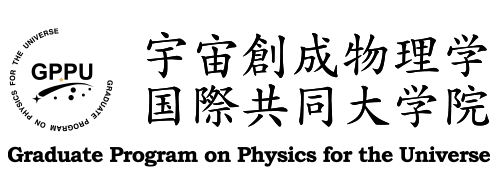GPPU Seminar
Relativistic heavy-ion collisions - an introduction
Georg Wolschin
(Heidelberg University)
Date
16:00-18:00, September 02nd, 2021Place
Zoom registration mapAbstract
A short survey of relativistic heavy-ion collisions with phenomena such as fluctuations, jet quenching, two-particle correlations, photon spectroscopy, hard probes of the transient quark-gluon plasma is given. Going into more detail, the rapid local thermalization of quarks and gluons in the initial stages of relativistic heavy-ion collisions is treated using analytic solutions of a nonlinear diffusion equation. On a similarly short time scale of t ≤ 1 fm/c, the stopping of baryons is accounted for through a QCD-inspired approach based on the parton distribution functions of valence quarks, and gluons. Results are compared to data from SPS and RHIC. Charged-hadron production is considered phenomenologically using a linear relativistic diffusion model with two fragmentation sources, and a central gluonic source that rises with the cubic logarithm of the energy. Quarkonia are used as hard probes for the properties of the quark-gluon plasma (QGP) through a comparison of theoretical predictions with recent CMS, ALICE and LHCb data for Pb-Pb and p-Pb collisions.
Point
GASP 1Contact: Yusuke Tanimura (tanimura [at] nucl.phys.tohoku.ac.jp)
